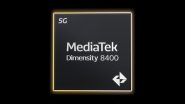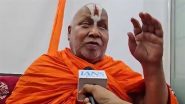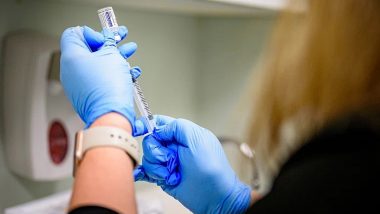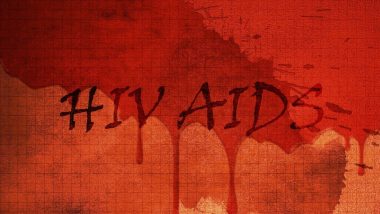Towards end of 2019, the world braced for COVID-19, which emerged into a global pandemic by March 2020. And now, towards the end of 2020, every person eagerly awaits the news of COVID-19 vaccine rollout. While leading countries are working on the best formulation to develop against the COVID-19 virus, UK sought approval for Pfizer-BioNtech’s COVID-19 vaccine for use, starting next week. The word "vaccine" now surges hopes for so many, as trials for other vaccines also simultaneously begin in other countries. But reaching every person with the vaccination faces a major hurdle, the anti-vaxxer movement. The misinformation and fake news, twirled with rumours spread faster than any good, informed news these days. So while one eagerly await the vaccine shots, others are probably more keen into believing the 'negative' after-effects of them. Let us understand how battling through the anti-vaxxer hurdle is of utmost importance right now. Volunteer Anil Vij Tests Positive After Taking Trial Dose of COVID-19 Vaccine Covaxin; Here's Why It Is Not a 'FAILURE'.
When the news of Pfizer/BioNTech’s approval in the UK came up, part of social media celebrated. They clung on the hope that things are about to look positive, more likely in 2021 where everyone gradually gets vaccinated against the deadly virus. But there was an equal number of anti-vaxxers showing their opinions against the vaccine. The common theories against the vaccines include, "It has a microchip, so the government can track you" or "It would lead to deformities in child birth," some saying, "it would alter DNA." These are some of the anti-vaxxer arguments that have been doing the rounds on social media. Actress Letitia Wright also sparked a debate on Twitter with anti-vax tweet. Some people have straightly denied taking the COVID vaccine because they do not find it reliable. COVID-19 Vaccine Update: US Plans to Start Vaccinating Americans in December 2020 if Pfizer Submits Positive Initial Data From Vaccine Trial to Health Regulators at the Earliest.
Check Some Recent Anti-Vaxxer Tweets:
Not Convinced
I believe in medicine and science. I’m really not taking the vaccine because the information around Covid has not been consistent from its onset. I’m glad the vaccine will be available but I’m not convinced in it’s effectiveness. I’m all for vaccines btw.
— _brooklynway (@_brooklynway) December 4, 2020
Govt Killing Me!
i’m definitely not taking that covid vaccine government not killing me.
— Kalycia (@kaaydaabae_) November 29, 2020
Not Taking It
I’m not taking no COVID vaccine. Absolutely not. Y’all can have that.
— Des. (@insanely_made) December 3, 2020
Expressing Scepticism
I’m not an anti vaxxer.......
......but it’s weird that the big pharma companies rolled out a tested and approved covid vaccine in a couple of months.
Although, the development for a new vaccine usually takes 10+ years to complete :/
Might just be me tho
— oB | Fame (@iFameGG) December 2, 2020
Not an Anti-Vaxxer But Still Not Taking It
IM NOT an anti vaxxer by any means but there’s no way I’m taking the first round of covid vaccines..
— david (@tequilacowboyy) December 3, 2020
There are a lot more of these tweets and accounts, ever since the news of COVID-19 vaccine dropped and this poses as a definite hurdle. To quote from an AFP report, the WHO and experts are warning of misinformation or "infodemic" to jeopardise the vaccination rollout. The World Health Organization (WHO) increased its efforts to tackle myths and rumours since it warned in February of a massive "infodemic", a deluge of information, including false claims that can risk public health. The same proves a problem even now after vaccine discoveries.
How Anti-Vaxxers Pose a Threat?
Misinformation Spreads Faster: A misinformed, non-fact based piece of information is likely to spread faster. People forward whatever they see on Facebook or WhatsApp without verifying the authenticity of it. Similarly, claims by anti-vaxxers are more likely to go viral without being checked by others.
Controversies and Conspiracies Attract Audience: A report about after-effects or negative results of a vaccine will garner more attention, compared to what process are the scientists or vaccine developers working on. People are more attracted towards the myths over the scientific approach.
Political and Celebrity Influence: A misinformation led by a political or influential figure becomes 'authentic' for their followers. For example: Donald Trump's tweet about being 'immune' to to Coronavirus was flagged by Twitter, but it became a basis to follow for Trump supporters. In fact, a study from Cornell University listed the US President as world’s biggest driver of Covid-19 misinformation during the pandemic.
So, misinformation continues to prevail. The fear of death or being disabled, being tracked by government, all of these work more in favour of influencing an anti-vaxxer stance. If more and more people oppose the vaccine, the immunization of larger population to this deadly pandemic becomes difficult.
(The above story first appeared on LatestLY on Dec 05, 2020 06:16 PM IST. For more news and updates on politics, world, sports, entertainment and lifestyle, log on to our website latestly.com).













 Quickly
Quickly




















